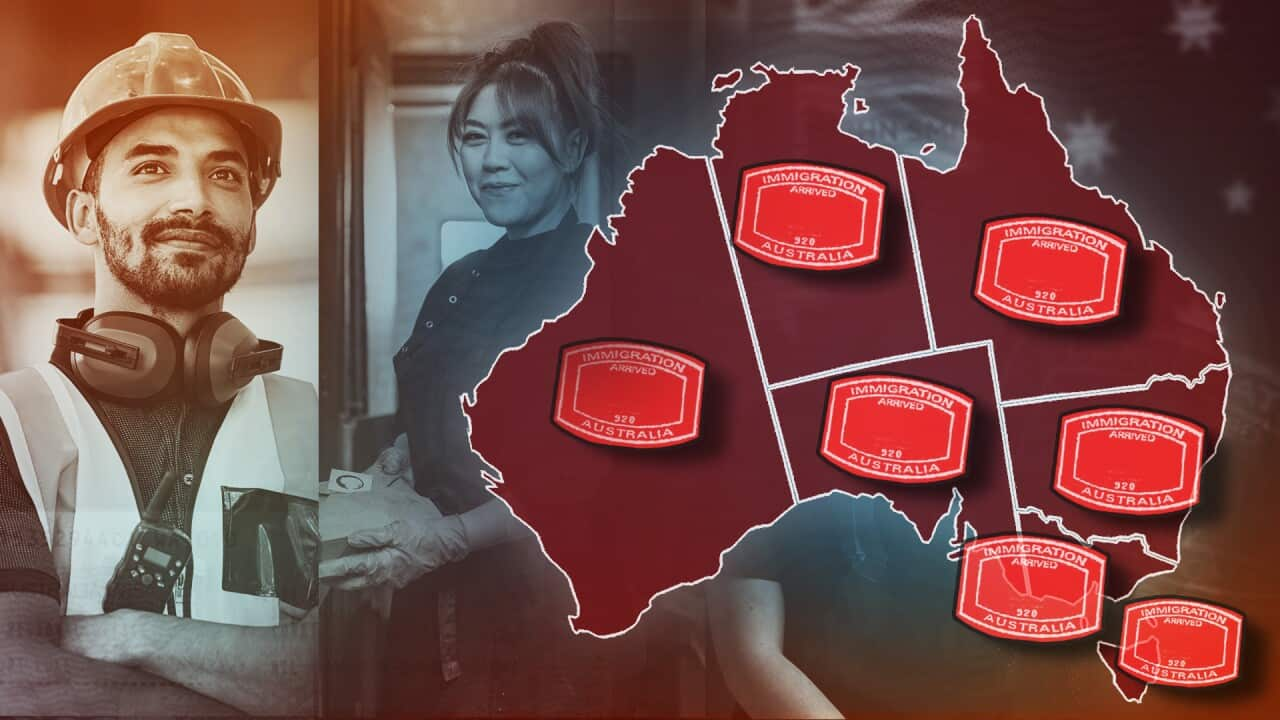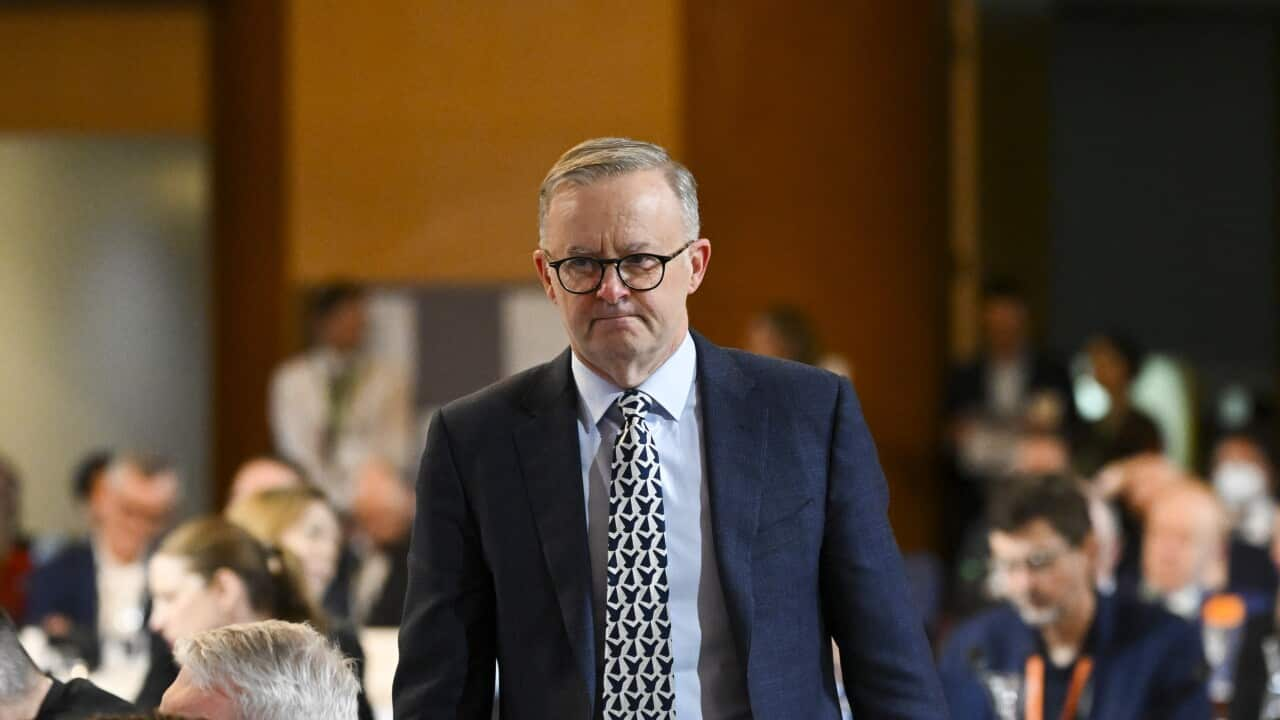Key Points
- A scheme that grants visas to people who invest at least $5 million in Australia will be reviewed.
- Home Affairs Minister Clare O'Neil says the Significant Investor visa stream "isn't adding value to the country".
A scheme that grants visas to people who invest at least $5 million in Australia will be reviewed, with Home Affairs Minister Clare O'Neil describing it as a way of effectively "buying your way into the country".
The Significant Investor provisional visa (SIV), often referred to as a 'golden ticket,' allows successful applicants to stay in Australia for up to five years if they make the investment into approved funds. It's also a pathway to permanent residency.
The program was introduced by the Gillard government in 2012 and has gone through various changes. In a 2016 report, the Productivity Commission called for it to be abolished, arguing investor visas are "prone to fraud".
Speaking to Sky News, Ms O'Neil said the visa stream is a "really big problem," as the federal government commits to a review of the country's migration system.
"I think most Australians would be pretty offended by the idea that we have a visa category here where effectively you can buy your way into the country," she said, in an interview broadcast on Sunday.
"At the moment, I can't see a lot of reasons to maintain it as part of our program."
How does the significant investor visa work?
Targeting business innovation and investment, the Significant Investor visa stream (subclass 188) is for people who invest at least $5 million into approved investments in Australia. They must meet certain requirements and have a genuine intention to hold that investment for the life of the visa.
That must be split between venture capital and growth private equity funds (which invest in start-ups and small private companies), approved managed funds (which back Australian Stock Exchange-listed emerging companies) and a "balancing investment" in managed funds.
The visa costs $9,195 for the main applicant, who can include family members for an additional charge.
There are no English-language requirements for the visa and no upper age limits. All applicants aged over 18 must either have functional English or will be asked to pay a second instalment of the application charge.
If successful, they can stay in Australia for up to five years and in turn, apply for permanent residence provided they meet certain requirements.
How many significant investor visas have been granted?
According to Department of Home Affairs figures as of June 2020, 2,349 SIV visas have been granted since the start of the program in 2012. During this time, about $11.7 billion has been tipped into complying investments.
About 84.8 per cent of total visa applications have been from China, and 84.9 per cent have been granted. About 3.6 per cent of visas granted were from Hong Kong.
The Australian newspaper reports more than 7,000 Chinese citizens have had visas granted under the stream, including 2,370 Chinese nationals and more than 5,000 family members. These figures have been confirmed by the Department.
Last month, the newspaper also reported members of Cambodia's Hun Sen regime were buying their way into the country, with 10 wealthy Cambodian citizens gaining significant investor visas in the past five years.
I think buy-a-visa is not how our visa system should operate.Abul Rizvi
What are the government's concerns?
Ms O'Neil said this type of visa has a negative lifetime impact on the federal budget, and is "actually costing us on average for every person".
"These are people who are generally coming in at quite a late stage of their life, often at the end of their business career, and coming into Australia to settle down and retire," she said.
"Now that’s not a productive use, I don't think, of our migration system."
Former deputy secretary of the immigration department Abul Rizvi agrees, and says he has been critical of the scheme for a number of years.
"I think buy-a-visa is not how our visa system should operate," he told SBS News.
"I think for the skill stream of the migration program, there should be a clear and unequivocal benefit to Australian society and to the Australian economy and budget. If that cannot be demonstrated, then the visa should be abolished.
"At this stage, I can’t see [what] benefit to Australia is obtained from this visa type."
What happens now?
The scheme's numbers were roughly halved for this financial year under immigration changes stemming from this month's
Ms O'Neil indicated it could be scrapped altogether following a review of the country's immigration system - announced last week - which is due to report by the end of February next year.
"It is a visa program that I think isn’t adding value to the country and it’s something that we will be looking at in the context of the migration review that I have just announced," she said.
When asked whether the scheme would be abolished, the minister said: "At the moment, I can’t see a lot of reasons to maintain it as part of our program."

Minister for Home Affairs Clare O’Neil and Minister for Immigration Andrew Giles during the Jobs and Skills Summit at Parliament House in Canberra, 2 September, 2022. Source: AAP / MICK TSIKAS
"There are other streams of this visa where the person is required to set up and/or run a business in Australia and employ Australians. I think those sorts of visa categories - while they can certainly be approved - are probably worth retaining, because of the benefit to the Australian economy, the budget and to Australian society."
When it comes to the government's migration review, Mr Rizvi sees "great merit" in looking at each visa type and assessing it on the grounds of its benefit to Australia.
"I would see inclusion of this in that review as being entirely sensible," he said.












